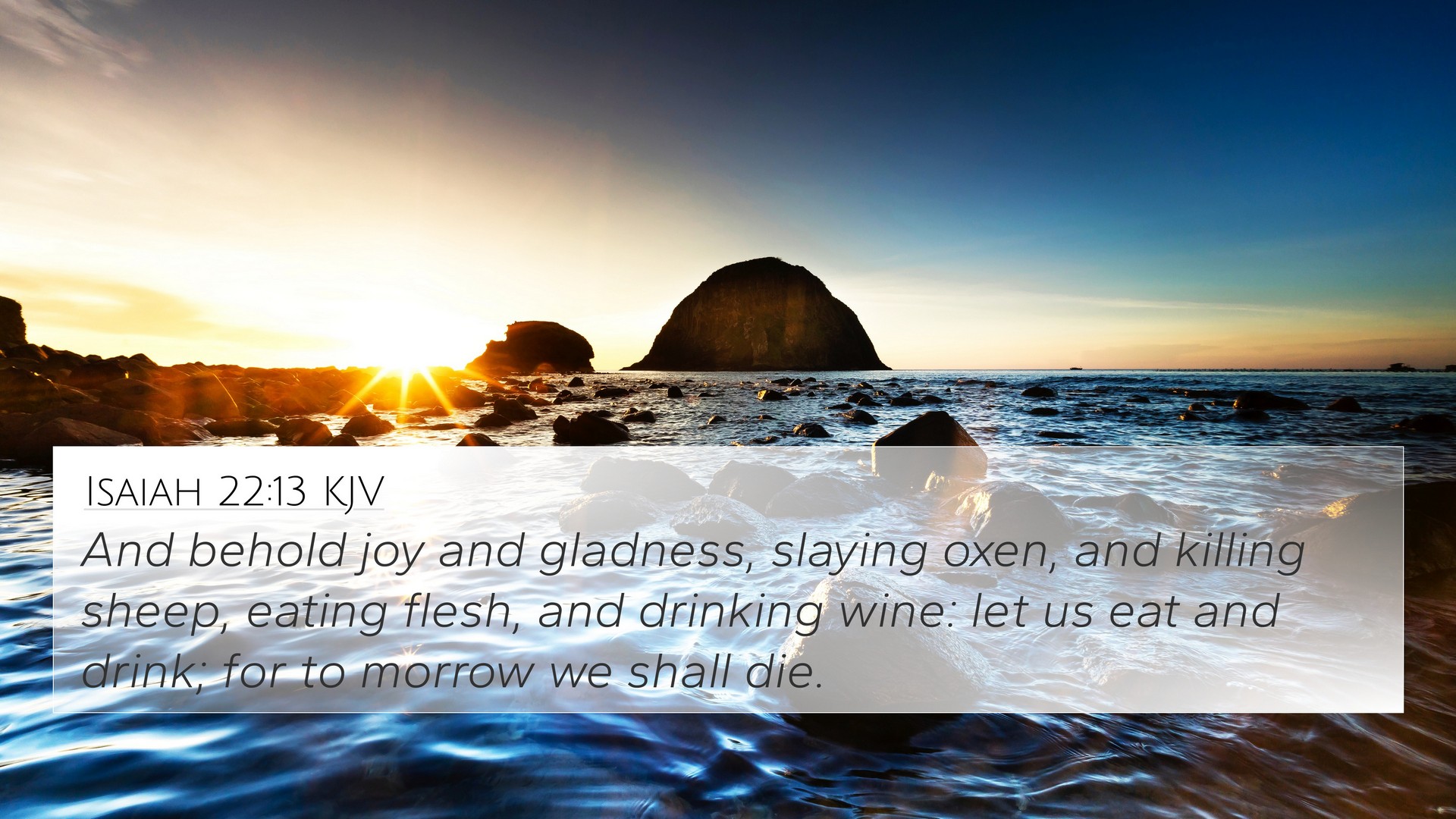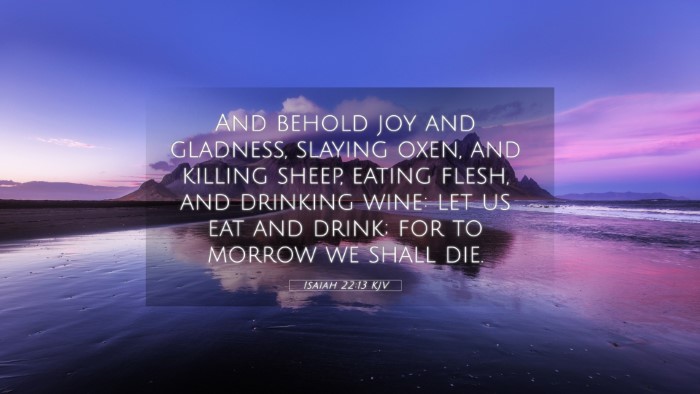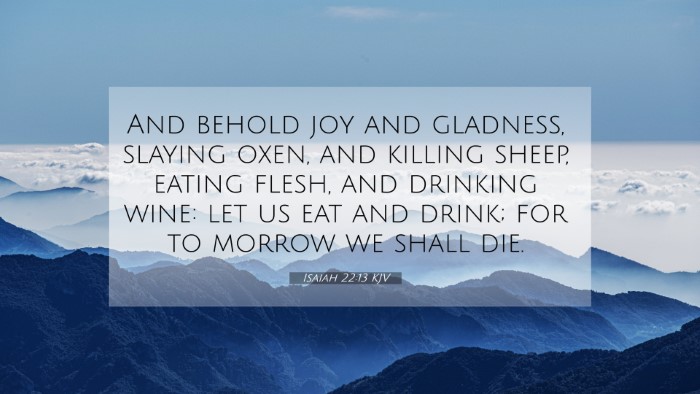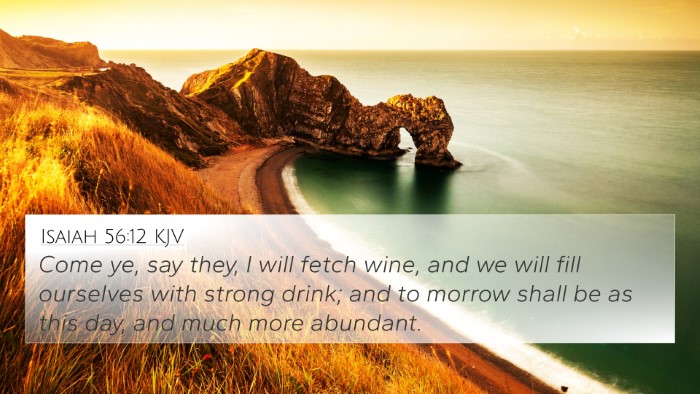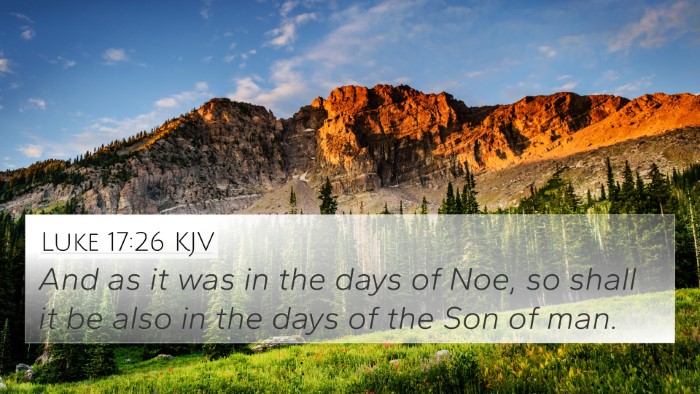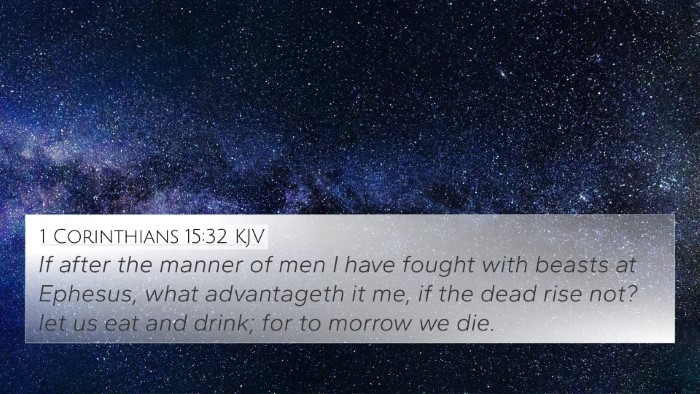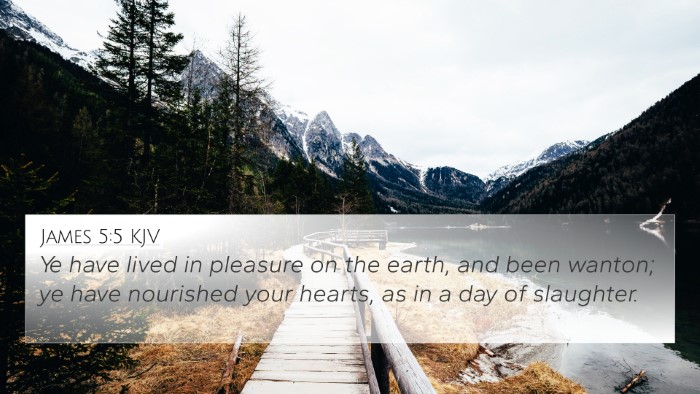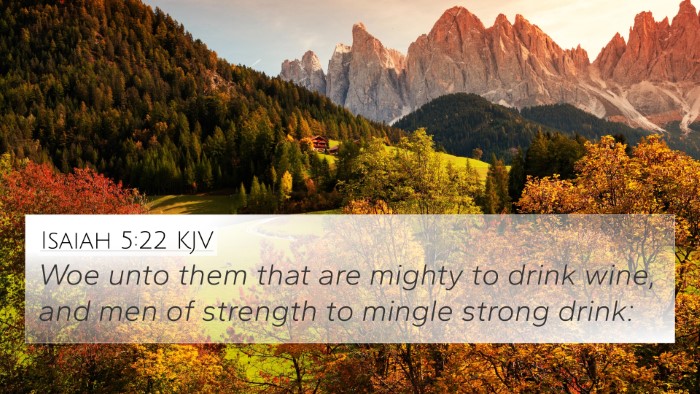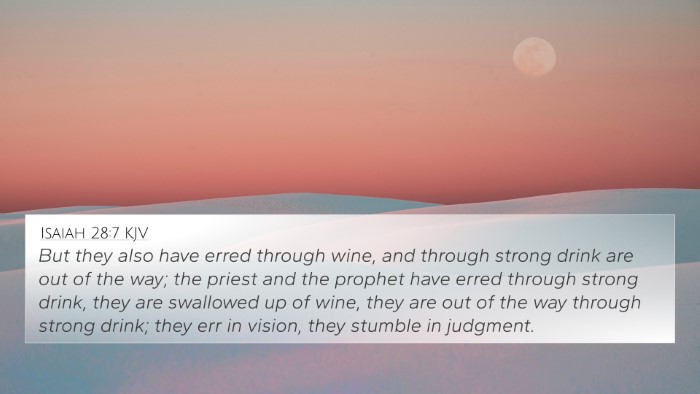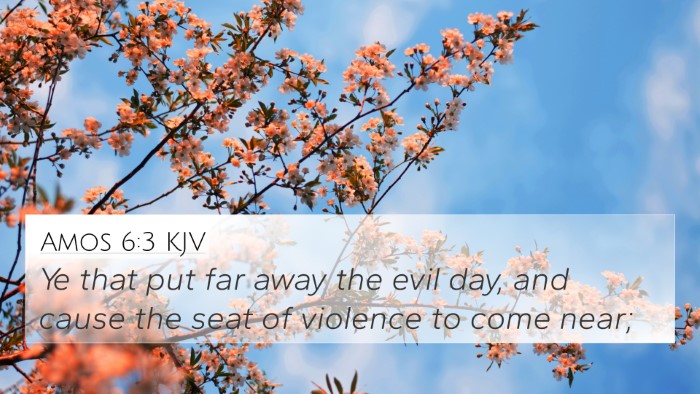Understanding Isaiah 22:13
Isaiah 22:13 reads: "And behold joy and gladness, slaying oxen and killing sheep, eating flesh and drinking wine; let us eat and drink, for tomorrow we die." This verse reflects a moment of profound despair and hedonism, characterized by revelry in the face of impending doom. To grasp its full significance, we can pull insights from various public domain commentaries, including those by Matthew Henry, Albert Barnes, and Adam Clarke.
Contextual Overview
Isaiah 22 is situated amid prophecies concerning the impending judgment on Jerusalem. Chapter 22 focuses on the attitudes and behaviors of the inhabitants of Jerusalem in the face of their disobedience and the impending siege. The verse speaks to a complacent society that, in the face of calamity, chooses indulgence over repentance.
Commentary Insights
Matthew Henry notes that the people are depicted as feasting and engaging in earthly pleasures, displaying a tragic misalignment of priorities. Rather than seek repentance and divine mercy, they opt for revelry, indicative of a disregard for the coming judgment.
Albert Barnes elaborates that this verse highlights the futility of human pursuits when faced with divine judgment. Rather than adhere to the sobering truth of their situation, the inhabitants indulge in excess, believing that their feast could somehow shield them from the reality of death and judgment. He emphasizes that this attitude is an illusion, reflecting a general state of denial about their spiritual condition.
Adam Clarke adds that the phrase “let us eat and drink, for tomorrow we die” conveys a philosophy of hedonism—if life is brief, one might as well indulge. This aligns with the existential questioning seen throughout Scriptures, where individuals grapple with the transitory nature of life and the inevitability of death. Clarke further explains how this attitude captures the essence of a culture that prioritizes immediate gratification over eternal considerations.
Bible Cross-References
- 1 Corinthians 15:32 - "If the dead are not raised, 'Let us eat and drink, for tomorrow we die!'" This verse echoes the mindset presented in Isaiah, applying it to a New Testament context.
- Ecclesiastes 2:24 - "A person can do nothing better than to eat and drink and find satisfaction in their own toil." This highlights the pursuit of pleasure amidst life's futility.
- Lamentations 3:22-23 - Discusses the mercies of God, in contrast to the despair expressed in Isaiah 22:13.
- Luke 12:19 - The parable of the rich fool who says, "You have plenty of grain laid up for many years. Take life easy; eat, drink and be merry." This is similar to the revelry seen in Isaiah.
- Romans 14:17 - "For the kingdom of God is not a matter of eating and drinking, but of righteousness, peace and joy in the Holy Spirit," presenting a contrasting perspective on true fulfillment.
- Proverbs 14:12 - "There is a way that appears to be right, but in the end, it leads to death." A warning against the pursuit of worldly pleasures.
- 2 Peter 3:3-4 - Discussing the importance of understanding and remembrance of the Word in the context of urgency and impending judgment.
- Isaiah 22:12 - Prior verse emphasizing the call to mourning and repentance as opposed to feasting.
- Psalms 78:29 - "So they ate and were satisfied; they went to the full; for He gave them what they craved." A reminder of God’s provision amidst human desires.
- Philippians 3:19 - Speaking of those whose god is their stomach and who set their minds on earthly things, similar to the indulgence in Isaiah.
Thematic Connections in the Bible
Isaiah 22:13 intricately connects to themes of mortality, recklessness in the face of judgment, and the stark contrast between worldly pursuits and spiritual needs. Through this verse we can explore:
- The futility of earthly pleasures: A recurring theme throughout the Scriptures, as seen in Ecclesiastes and the messages of the prophets.
- The concept of judgment: The prophetic warnings serve as reminders of divine accountability, resonating through the Old Testament and New Testament teachings.
- Human nature and rebellion: The inclination toward indulgence over repentance is a common narrative in both the histories of Israel and the teachings of Jesus.
- The contrast of worldly wisdom vs. divine revelation: The people’s choice to indulge showcases a failure to heed God’s wisdom.
Conclusion
Isaiah 22:13 serves as a poignant reminder of the human tendency to forgo true repentance in favor of fleeting pleasures. The connections across various scriptures enhance the understanding of this truth, demonstrating the continuity of God's message throughout the Bible. As believers, engaging in Bible cross-referencing techniques can illuminate the depths of scripture, connecting the urgent call for repentance with the timeless nature of human desires.
